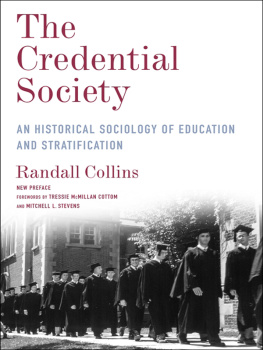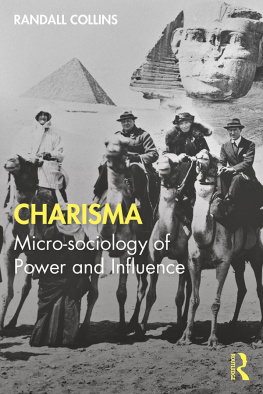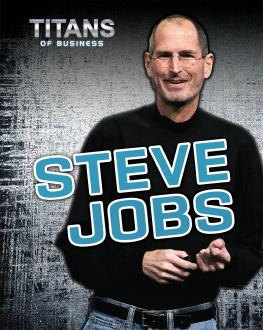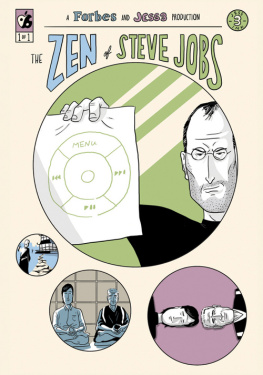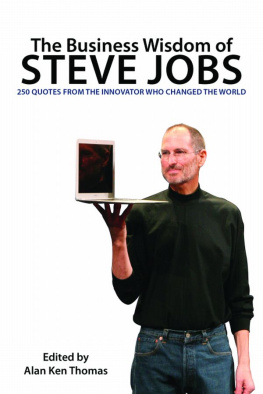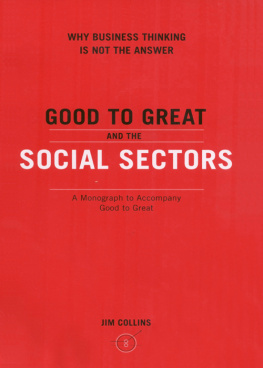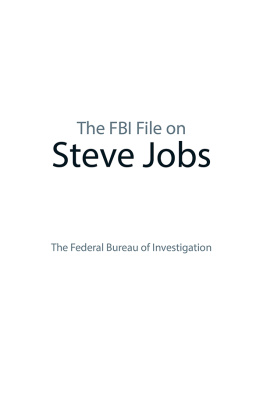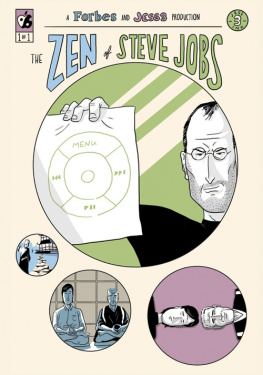CONTENTS
Introduction: Success is a Career of High Emotional Energy 8
PART I.
HOW TO GROW WINNING NETWORKS BY EMOTIONAL ENERGY:
STEVE JOBS AND YOU 12
Emotional Energy in Yourself
The EE (Emotional Energy) Thermometer
Steve Jobs Affects Everyone's EE
Careers : A Marathon Coachs Advice about Not Sleeping Before the Race
Emotional Energy in Groups: Collective Effervescence
Warning: Collective Effervescence Has a Short Shelf-life
High Attunement builds EE, Low Attunement lowers EE
People and Situations that Bring You Down
What About People Who Seem Energetic But Don't Get Things Done?
The Fourth Dimension of EE: Rhythm/Sync
EDOM: Emotional Domination
Careers : Caesar Faces Down a Mutiny
Did Steve Jobs ever Hesitate?
Energizing Networks of Allies
Heavyweight and Lightweight Networks
Six Degrees are Useless: What You Need is a Two-link Heavyweight Network
What You Know Is Not Separate from Who You Know
Careers : Not Just Any Mentor
Dangerous Networks: Rivals and Opponents
The Raid on Xerox
Bill Gates as Turncoat Insider
What Money is Good For: Freedom to Build Your Own Networks
How did Steve Jobs Recover from Being Exiled?
Inner and Outer Networks
Inner Circle: Networks of EE
Networks of EDOM: Allies, Deal-Making Networks, Rivals
Outer Ring: Pseudo-networks of Reputation
Time-Line: Steve Jobs' Career and Turning Points
Careers : Insiders in Sports: Winners See It Differently
PART II.
NAPOLEON AS CEO 65
A Career of Emotional Energy
Starting Young in the Adult World
Careers : Building Momentum against Easy Competition:
Sam Walton in Arkansas
Luck is Location at the Cusp of Change
Careers : Networks at the Edge of Danger:
Michael Collins Takes Over the Irish Revolution
Networks That Made Napoleon
Careers : Marrying (and sometimes divorcing) the Boss's Daughter
Napoleon's Winning Style
Always active, never passive
Speed is organization-wide
Morale over material
Mobile firepower
Careers : Caesar is Prepared to Have Trouble
On a Roll
Careers : The Reputation Multiplier: Caesar's famous Fortune
Dilemmas
Overextension
Opponents catching up
Careers : Ulysses S. Grant Deflates the Magic of Robert E. Lee
The creep of formalities
Napoleon's Down Moments
Careers : Re-launching on the Rebound: Building IKEA
9. Endgame: Losing Emotional Energy
Ability, What is It?
Careers : Genius is How You Look at It
PART III.
WHAT MADE ALEXANDER GREAT? 104
Launching from the most Advanced Platform
Careers : If You Can't Inherit It, Join It
Tiger Woods Training
Careers : Avoiding the Bureaucratic Ladder,
Side-stepping the Credential Queue
The Ideal Target for Takeover
Careers : Making a Killing:
Piecing Together the World's Largest Insurance Company
A Growing Resource Beats a Stagnant Resource
The Difference-maker: Logistics-plus-Diplomacy
Alexander's Victory Formula
Cautious Timing, Explosive Action
Observe Weakness and Attack It
Careers : Superior Troops Have Empowered NCOs
Emotional Domination is More Decisive than Trickery
Alexander's Dilemmas
The Impetuous Leader
A Drunken Killing and a Management Dilemma
Careers : The Old and New Management Teams
Two Mutinies
Partying to Death
Why did Alexander Sleep Well, but Napoleon Never Slept?
Careers : Carousers and Workaholics
PART IV.
ELEVEN PRINCIPLES OF WINNING BIG 138
EE: emotional energy
EDOM: emotional domination
Gain EE from successful encounters;
avoid energy-draining encounters
Keep checking micro-social attunement and disattunement
Energizing the group energizes yourself
Details are never boring when they have trajectory;
successful people are never bored
Start early in the adult world:
skip the credential queue and the bureaucratic ladder
Build momentum where its easy-- but with a path to big leagues
The big battle, the big deal: monitor rivals, identify weakness and exert EDOM
Build inner circle and alliance networks by EE,
deal-making networks by EDOM,
and outer reputational networks by collective effervescence
Heavyweight networks are dangerous:
expect volatility
Luck is location at the cusp of change;
launch from the most advanced platform
Ideological rigidness limits success;
other people's rigidness is your opportunity
Knowing What Arena Youre Playing In
War
Business empire-building
Politics and social movements
Scientific, intellectual and artistic worlds
REFERENCES 149
INTRODUCTION
Success is a Career of High Emotional Energy
What all highly successful people throughout history have in common is they were extremely energetic.
Napoleon slept only four hours a night, and that was during quiet times, when France was at peace. When he was with his army on campaign, he napped in snatches of 15 minutes here and there, and was up at all hours, ahead of everyone else, getting the next day's action ready to go.
Winston Churchill, during the Second World War, would take a nap in the afternoon and stay up all night answering dispatches. Beethoven was so engrossed in composing that he didnt even notice his meals-- his cook would find the untouched dishes outside the door next day while Ludwig was still crafting music inside. Steve Jobs would phone key people in the small hours of the morning, or stay up all night at their house making enthusiastic plans.
Where does their energy come from? Eventually most people get tired. How do these historically successful people keep it up, day after day, night after night, year after year? Call it passion if you like, but putting a word on it doesn't really explain it. Why don't big winners in the game of success get burned out, like most other people?
They didn't do it just by repeating slogans to oneself. Always try harder, never give up, believe in yourself. Words like these have been popular for thousands of years, from the time of the ancient Romans to the latest athletic coach. Millions of people have tried to pump themselves up this way, but only a few have been extremely successful. Both losers and winners in football games repeat the same slogans. Exhorting yourself is just a personalized form of advertising hype, if it isn't combined with the real techniques by which people produce success.
There is no evidence that Napoleon, Alexander the Great, Julius Caesar, or Steve Jobs spent any time repeating such mantras. So what did they do?
The top leaders, the big winners energized other people around them, and got energy from them in return. They were experts at the art of social interaction.
They generated emotional energy in their encounters, whether in full-scale meetings or brief conversations.
What is emotional energy ? (We'll abbreviate it EE.) High EE is feeling pumped up, bodily and mentally. High EE persons are confident and proactive. They are forward moving; they have a path to a goal and they convey it to other people.




